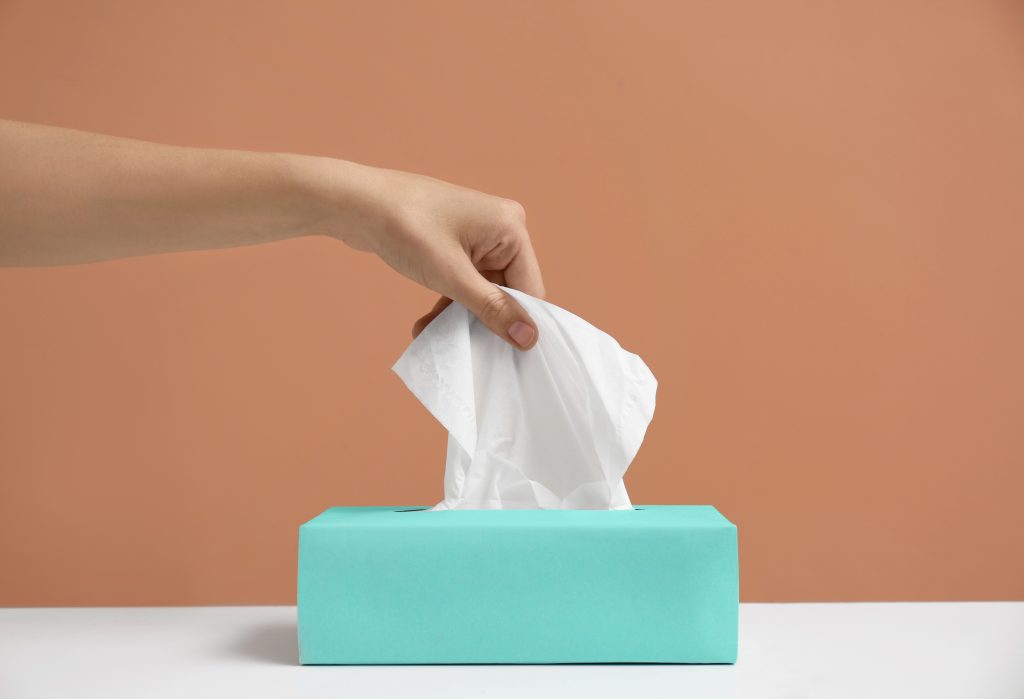
Have you noticed that familiar ringing in your ears seems more intense when allergy season arrives? This is a common experience for many people who live with tinnitus. Allergies don’t just bring sneezing, itchy eyes, and congestion—they can also make buzzing, hissing, or humming in the ears more noticeable. While the connection between allergies and tinnitus isn’t always obvious, a closer look shows a clear relationship.
Allergic reactions trigger inflammation throughout the upper respiratory system, including the nasal passages, sinuses, and Eustachian tubes. These small tubes link the middle ear to the back of the throat and nose, helping to regulate pressure in the ears and drain fluid.
When allergies cause swelling or blockages in the Eustachian tubes, it can lead to a feeling of fullness, mild hearing changes, or an increase in tinnitus. For people who regularly experience ringing or buzzing, seasonal congestion can make the sounds noticeably louder.
Seasonal allergies often increase mucus production, which can affect how the inner ear functions. If fluid builds up or ear pressure isn’t balanced correctly, the inner ear may have trouble sending normal signals to the brain. For tinnitus sufferers, this can result in more persistent or intensified ringing.
Some individuals notice that their tinnitus worsens when they lie down. This is often due to changes in blood flow or sinus pressure in that position, both of which can be influenced by allergens in the environment.
Treating allergy symptoms might seem like the obvious way to relieve tinnitus, but medications can have unexpected effects. Over-the-counter antihistamines and decongestants can ease congestion for some people, but in others, they may actually exacerbate ringing in the ears.
If you experience a sudden increase in tinnitus after starting a new allergy treatment, it’s a good idea to speak with your doctor or audiologist. Adjusting the medication or finding alternatives may help manage your allergies without making ear symptoms worse.
Although you can’t stop pollen and other allergens from circulating outdoors, there are steps you can take to limit their impact on your ears. Keeping windows closed, using a humidifier to prevent dryness, and staying well-hydrated can all help support sinus and ear health.
For those whose tinnitus is especially bothersome, working with an audiologist can provide additional relief. Techniques like sound therapy, hearing aids, or tinnitus retraining therapy can reduce the perception of ringing and make symptoms more manageable.
If your tinnitus spikes during allergy season or you notice changes in hearing, ongoing ear pressure, or discomfort, a hearing evaluation is recommended. What seems like a temporary seasonal issue could sometimes indicate a more significant underlying problem. A professional assessment can help identify the cause and guide the best next steps.
Allergies affect more than just your nose—they can influence your ears too. If you notice your tinnitus becoming louder during times of high pollen or sinus congestion, you are not alone. Understanding the link between allergies and tinnitus is key to managing your symptoms effectively and staying comfortable throughout the season.

Thomas Caruso is a second-generation, Nationally Board Certified Hearing Healthcare Dispensing Practitioner with over 40 years of experience serving patients in both New York and Pennsylvania. Specializing in adult hearing care, he earned his National Board Certification in Hearing Instrument Sciences in 1988.
Throughout his distinguished career, Thomas has not only provided exceptional patient care but has also contributed to the advancement of the hearing healthcare field. He has served as an educator and consultant to many of the nation’s leading hearing aid manufacturers, retailers and laboratories, sharing his knowledge and expertise to help shape best practices within the profession. His work has taken him across the United States and Canada.
Born and raised in Jamestown, New York—where he continues to reside with his family—Thomas has been a dedicated member of the International Hearing Society since 1984 and is actively involved in the Hearing Healthcare Alliance of New York State. His commitment to the profession, combined with his decades of experience, has made him a trusted and respected leader in hearing healthcare.